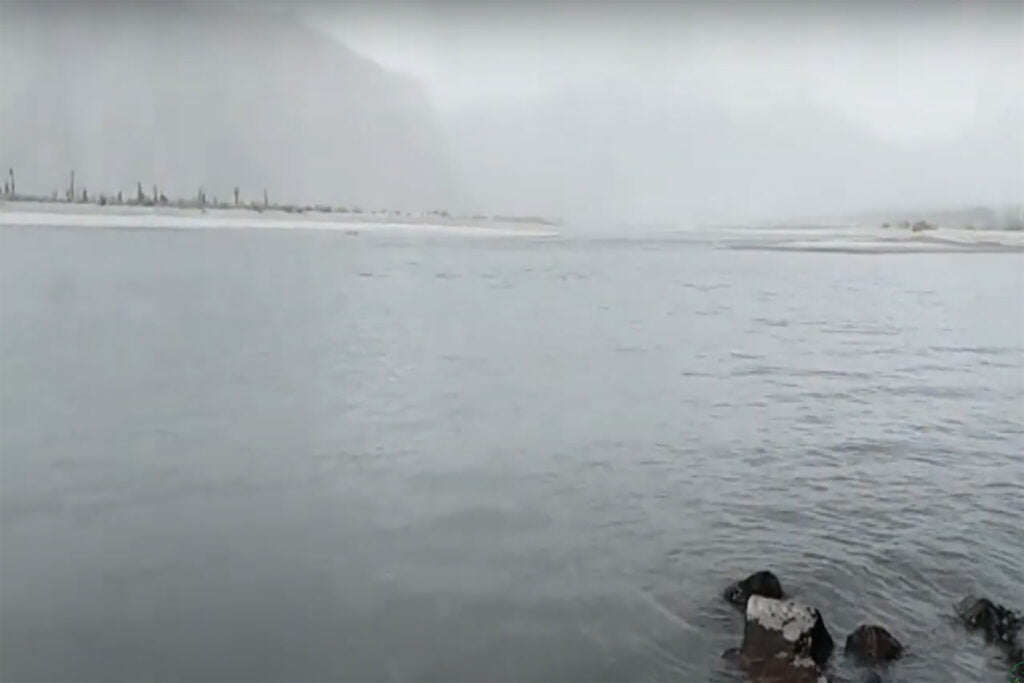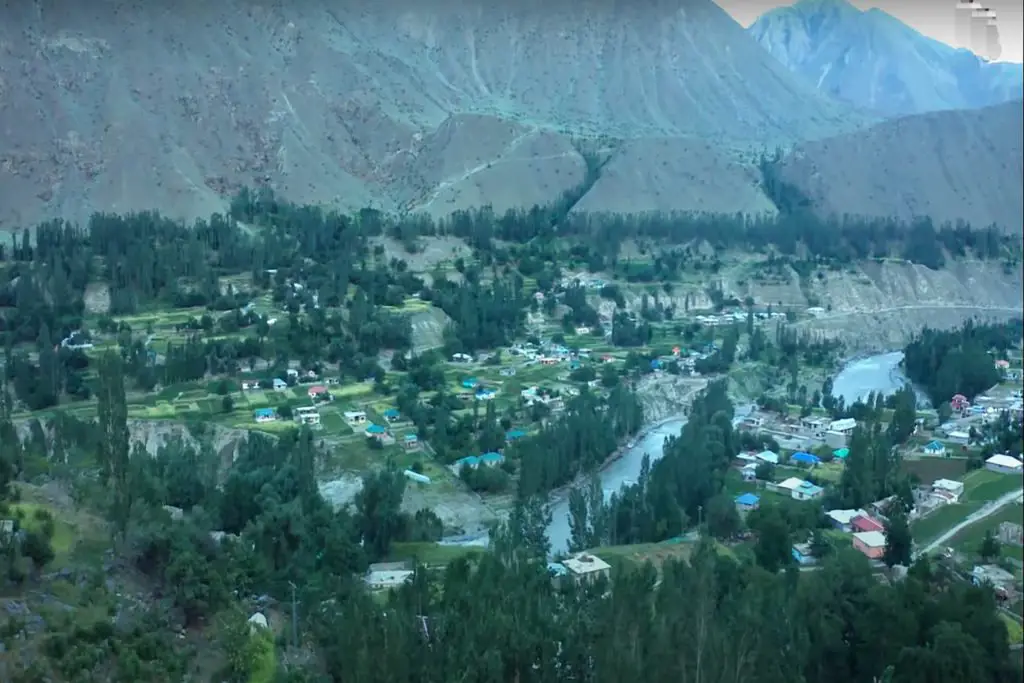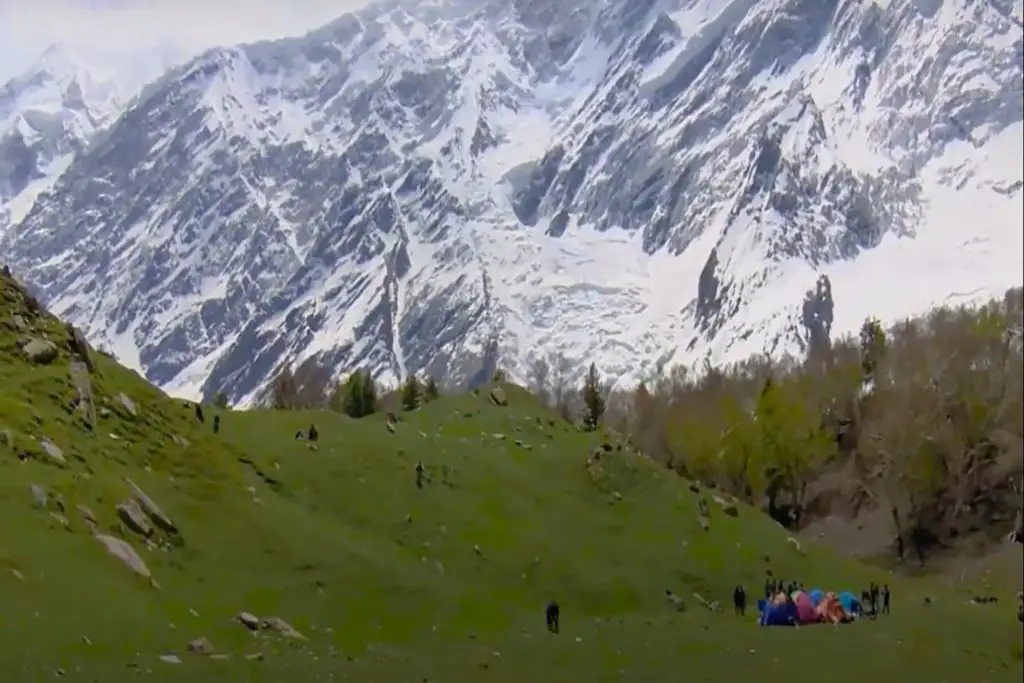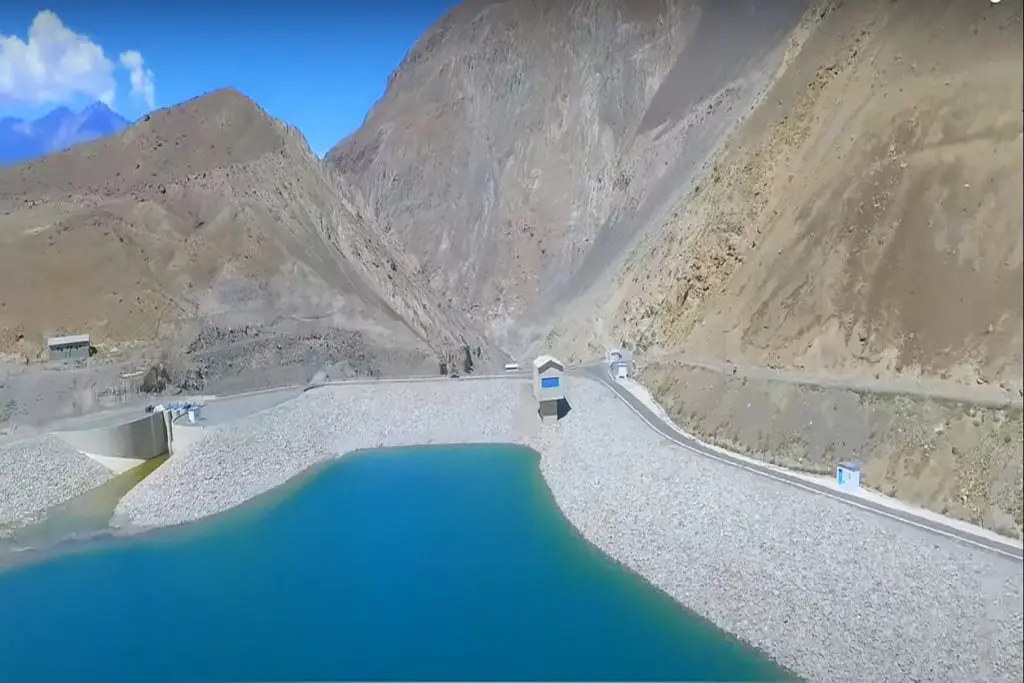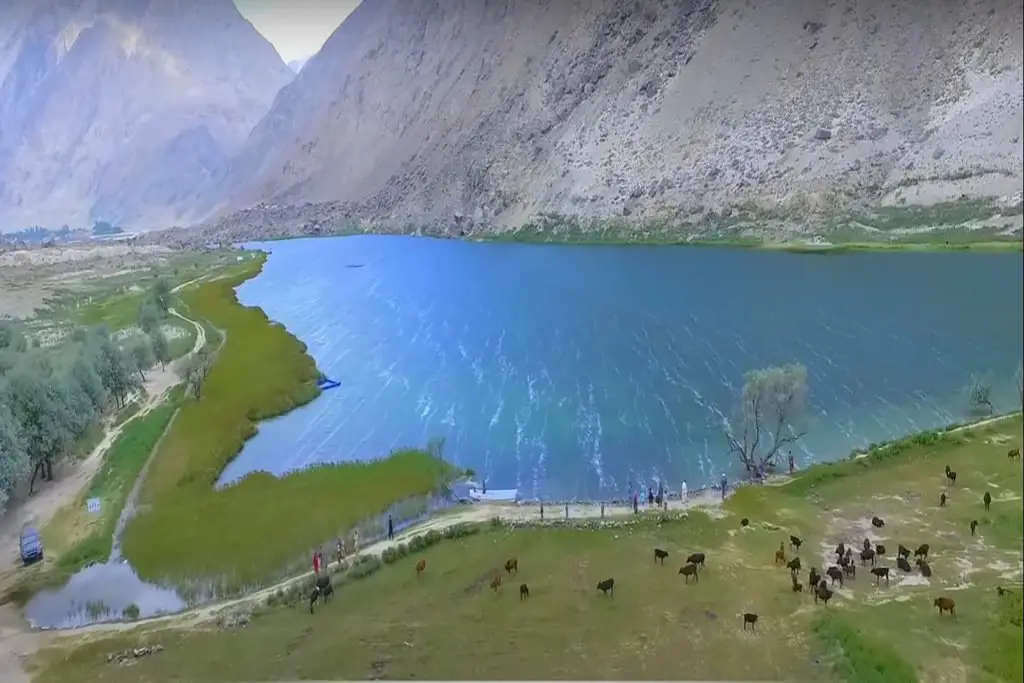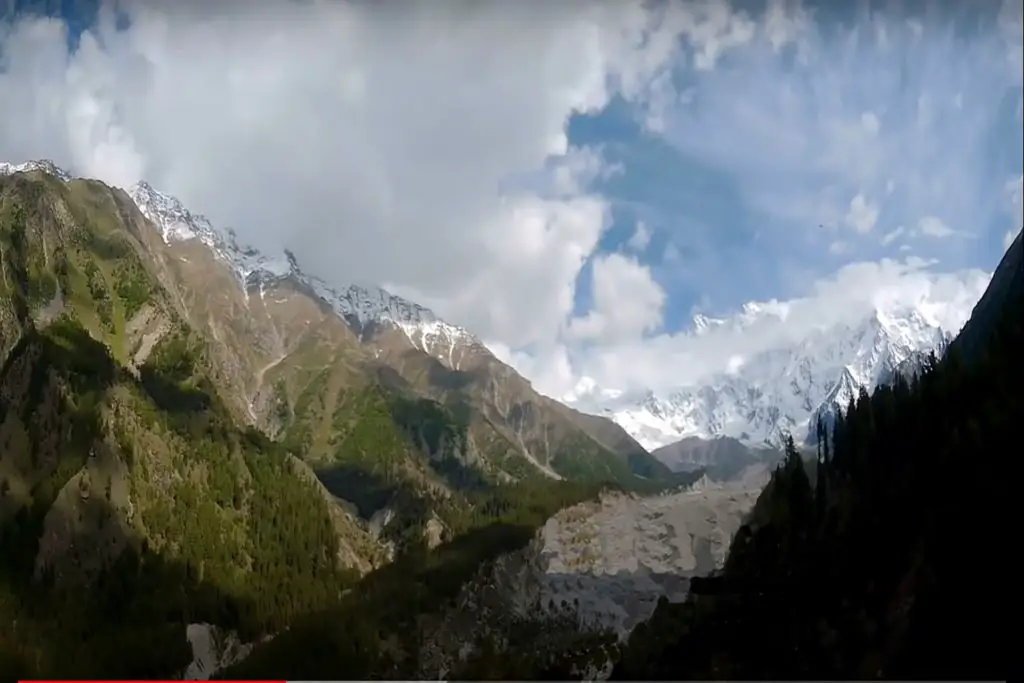Skardu is a beautiful valley situated in the Gilgit-Baltistan region of Pakistan, through which the mighty Indus River flows. The Indus River is one of the longest rivers in the world, originating in Tibet and flowing through Pakistan before emptying into the Arabian Sea. The river is the lifeline of Pakistan, providing water for irrigation, hydroelectric power, and a source of livelihood for millions of people.
The Indus River Skardu flows through Baltistan and Gilgit and emerges from the mountains at Attock. The Indus River Skardu flows through the City, adding to its natural beauty and making it an important region for river-based tourism.
The Skardu Valley is located in Gilgit-Baltistan, Pakistan. The valley is about 10 km wide and 40 km long. It lies at the confluence of the Shigar and Indus rivers. It is surrounded by the great Karakoram mountain range. With nearby lakes and mountains, it is an important tourist spot in Pakistan. Skardu is the capital of Baltistan along the broad banks of the Indus River.
Skardu is the largest district in the northern regions. Baltistan is home to some of the highest peaks in the world, the Karakoram Mountains, Skardu is very popular for mountaineering expeditions. It is equally popular with alpine hikers who trek to Baltoro Glacier, K2 Base Camp, and Concordia. It is approximately 5 hours from Gilgit by Skardu road.
Significance of Indus River Skardu
The Indus River Skardu is not only a source of natural beauty but also has immense historical significance. The river was the cradle of the ancient Indus Valley Civilization, which flourished in the region between 2600 BCE and 1900 BCE. The civilization, one of the earliest in the world, was centered around the Indus River and its tributaries. The ruins of several ancient cities, such as Mohenjo-daro and Harappa, are located along the banks of the river.
The Indus River Skardu also played a vital role in the spread of Buddhism to the region. The famous Chinese traveler, Xuanzang, who visited the region in the 7th century, described the Indus River as “the mother of all rivers”. He noted that the river provided water for irrigation, enabling farmers to cultivate crops and support a thriving economy.
Tourist Attractions and Indus River Skardu
The Indus River is a major attraction for tourists in Skardu, offering activities like white-water rafting and fishing. The river’s rapids provide a thrilling experience for adventure enthusiasts, while the serene stretches of the river offer a tranquil escape for those seeking a peaceful retreat.
Indus River, Skardu is also home to a variety of fish species, making it a popular destination for anglers. The brown trout and rainbow trout are the most sought-after fish species in the river, and many fishing enthusiasts visit Skardu to indulge in this popular pastime.
Indus River Importance
Today, the Indus River remains a crucial resource for the people of Pakistan. The river provides water for irrigation, drinking, and industrial use, and its tributaries generate hydroelectric power. The Indus River System Authority (IRSA) manages the river and its tributaries, ensuring equitable distribution of water among the provinces of Pakistan.
Apart from its natural beauty and recreational activities, the Indus River also plays a significant role in the region’s agriculture. The river’s water is used to irrigate the fields, making it possible for the farmers to grow crops like wheat, rice, and maize. The river also supports the growth of fruits like apples, apricots, and grapes.
Challenges for Indus River Skardu
However, the Indus River Skardu faces many challenges, including pollution and climate change. Industrial and agricultural waste discharge into the river, causing water pollution and threatening the health of the river’s ecosystem. Climate change has also affected the river’s flow, leading to decreased water availability and posing a threat to the region’s agriculture.
Efforts are underway to address these challenges and preserve the Indus River’s beauty and ecological health. Various initiatives like river clean-up drives and sustainable agricultural practices are being implemented to protect the river and its ecosystem.
In conclusion, the Indus River is a symbol of Pakistan’s rich cultural heritage and natural beauty. Its flow-through Skardu adds to the region’s stunning landscape, and its historical significance cannot be understated. The river remains a vital resource for the people of Pakistan, supporting their economy, livelihoods, and way of life.

